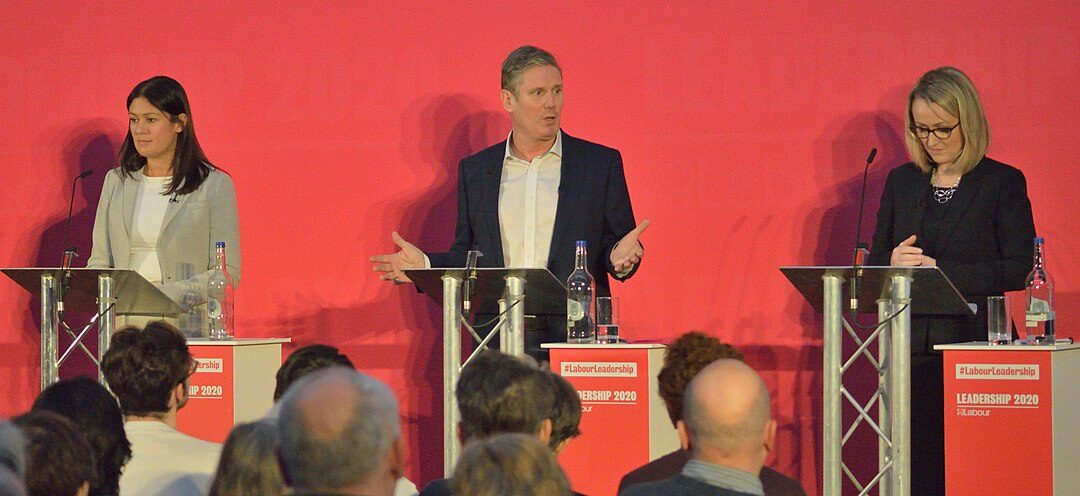Labour lead the polls: midterm blues or a government-in-waiting?
For months, as they battled sleaze, scandal, and the ups and downs of the pandemic, the Conservatives defied political gravity. It’s been two long years since the 2019 General Election and yet, as we approached the approximate mid-point of this parliament, Johnson had managed to stay ahead, or levelling pegging with Labour.
However, in December, Labour finally managed to pull ahead, stretching a slight edge in opinion polling to an impressive 9-point lead. Like Ed Miliband’s frequent poll leads, is this a brief reprise on the road to General Election Defeat? Or is this a turning point in the plight of the Labour Party?
Johnson and Sunak, so robust in the early stages of the pandemic, now seem missing in action
Firstly, it’s safe to say that the growth in popularity for the Labour Party owes more to the Government’s floundering than to adeptness from the Opposition. Boris Johnson has surrounded himself with a bubble of sleaze, with everything from his dealing with Owen Paterson’s corruption allegations to his astonishing use of other people’s money to finance his flat, making him look like he may have deceived the Commons, the country, and the authorities.
Furthermore, what had been a benign economic environment due to the successful vaccine roll-out has now begun to look incredibly treacherous. The threat of Omicron has put another dampener on growth, whilst inflation is at levels not seen since before the independence of the Bank of England. Johnson and Sunak, so robust in the early stages of the pandemic, now seem missing in action.
That being said, ‘oppositions don’t win elections, Governments lose them’ is a familiar Westminster maxim. So, if the Government is imploding, perhaps Starmer just needs to keep out of the way. Indeed, every time UK Oppositions have replaced a Government in the modern era, it had followed an economic event that the Government arguably had little control over (the Winter of Discontent in 1979 before Thatcher’s landslide, 1992’s Black Wednesday before Blair’s 1997 landslide, and the 2008 Great Recession before the Coalition came to power). However, merely being the alternative to an unpopular leader is rarely enough. Labour also needs to provide a welcoming home for voters disaffected with the Government. These recent polls suggest that Starmer has gone some way in facilitating this, but not far enough.
The country is tiring of Johnson, and they’re looking to Starmer to see if he has anything to offer
It’s common for oppositions to lead the Government during the middle of their terms. The last time that Labour had a poll lead this large over the Tories was only in 2014, just before Ed Miliband led them to another defeat. Often it makes sense for a government to shoulder some of the difficult decisions of governing at this stage, taking a hit in opinion poll rating so that they can announce popular things closer to an election. Issues stemming from promised National Insurance hikes may fall into this category, though most of the Government’s woes do not.
So, will Starmer’s lead ebb away in the coming months?
As things are, it seems unlikely that he’ll be able to maintain this support. Many of his actions have damaged Johnson’s popularity so far, but his actual agenda remains largely untouched. Until the Tory reputation for handling the economy, crime, or Brexit is damaged, a Labour lead won’t survive a General Election Campaign.
However, Starmer has an opportunity to dent these now, arguably for the first time in his leadership. If Labour can, as they should, transform their competence and sleaze critique into a broader challenge – highlighting, for example, that whilst Johnson has found time to finance his flat, he hasn’t succeeded in Levelling Up the North – current Tory woes could be the beginning of the end for the Government. It’s worth noting, too, that Starmer’s personal ratings have also improved relative to the Prime Minister’s. This is crucial, as trust (or mistrust) in the individual leader is often highlighted and magnified in a campaign. The country is tiring of Johnson, and they’re looking to Starmer to see if he has anything to offer.
A bad spell for the Government isn’t sufficient to deliver a Labour victory. Labour still has to offer a credible alternative to the Tories, challenge their dominance on crucial issues, and present Starmer as a viable and inspirational potential Prime Minister. However, it is a necessary condition; if things are going well for the Government, the Opposition can do almost nothing to usurp them. Moreover, now that Johnson is caught in a cycle of chaos and corruption, Labour has a real chance of evicting him from Number 10. In 2022, things are looking up for Labour, but it’s probably not time to call the moving vans just yet.

Comments